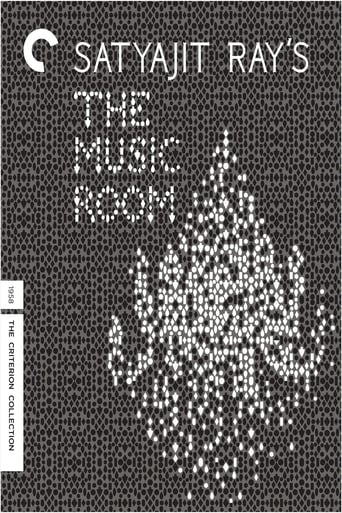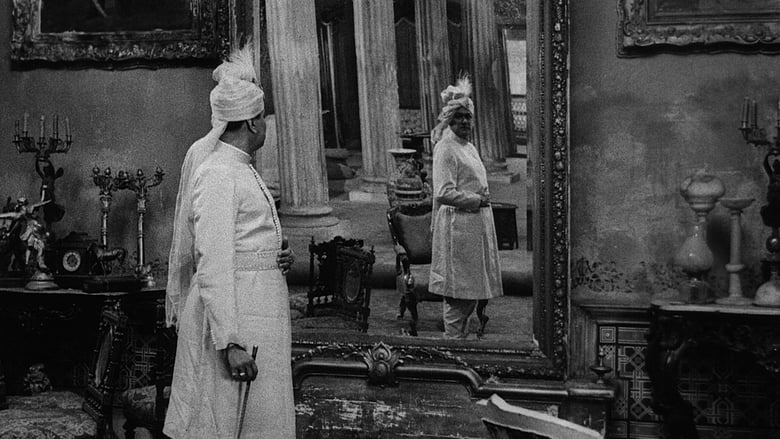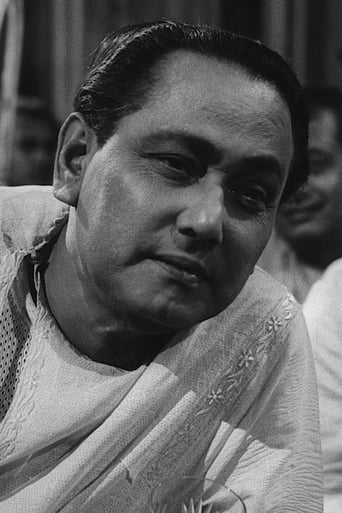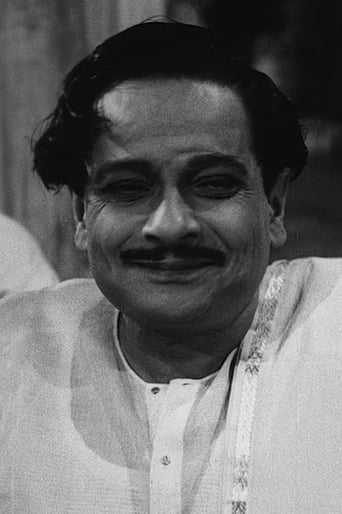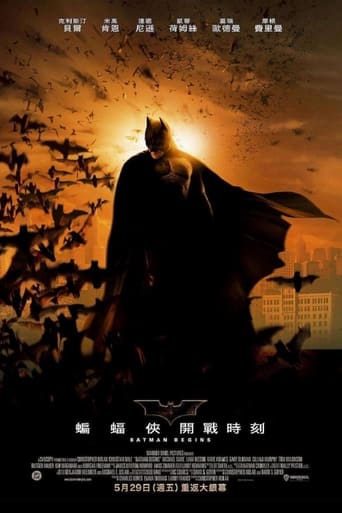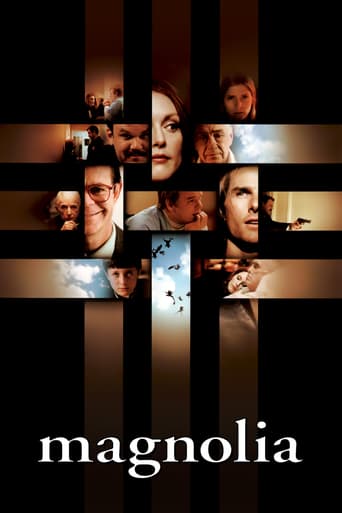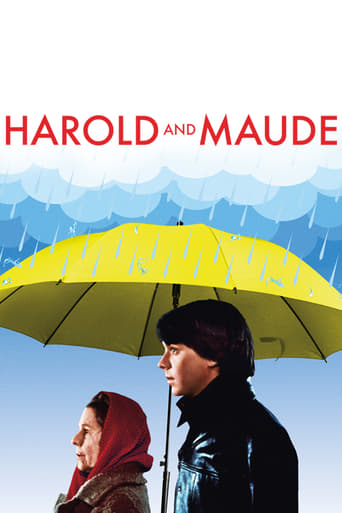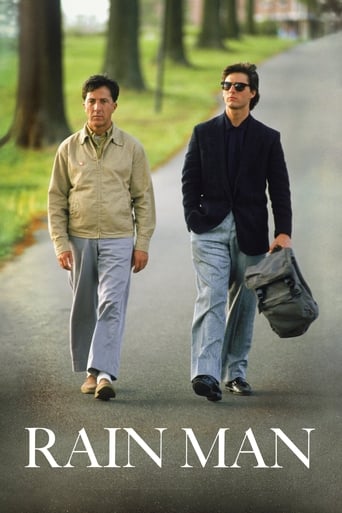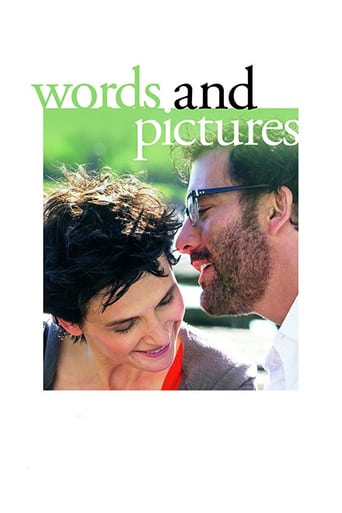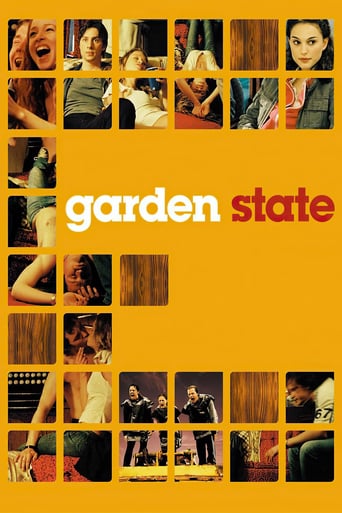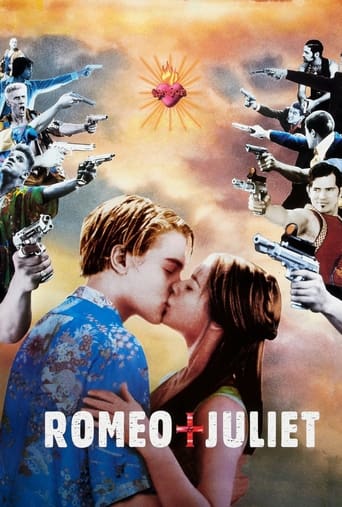The Music Room (1963)
A wealthy landlord lives a decadent life with his wife and son. His passion – his wife would calls it his addiction – is music, and he spends a great deal of his fortune on concerts held for the locals in his magnificent music room. He feels threatened by his neighbour, a commoner who has attained riches through business dealings. His passion for music and quest for social respect are his undoing, as he sacrifices his family and wealth trying to retain it.
Watch Trailer
Cast


Similar titles
Reviews
everything you have heard about this movie is true.
If the ambition is to provide two hours of instantly forgettable, popcorn-munching escapism, it succeeds.
The film may be flawed, but its message is not.
Like the great film, it's made with a great deal of visible affection both in front of and behind the camera.
I avoided watching this for a long time, leaving it to sit in my queue of DVR'd foreign films for at least six months, thinking its plot wouldn't be compelling. What kept the film in my lineup was its direction by Satyajit Ray; with Ray at the helm, I couldn't believe the film could be bad. And I am very glad I finally gave this movie a chance. Here in 1920s India we meet the decadent landlord Roy (Chhabi Biswas), an idle man who finds himself threatened by changing times that allow people who weren't born to privilege to better themselves through hard work. Roy is a classic example of the type of person who doesn't appreciate what he has. He has squandered the goodwill of his lovely wife (Padma Devi), who would rather sleep in their son's room, and though he enjoys his 13-ish son (Pinaki Sengupta), he isn't willing to accompany the family on a sick call and he cavalierly calls them back home when bad weather threatens. Roy encounters the worst kind of karma for putting his love of leisure and music above all else. However, along the way we are treated to three performances of classic Indian music and dance that are truly hypnotizing. I felt myself being skeptical of the strange sounds at first, only to lose myself in their intriguing melodies and rhythms. Bravo to director Ray for filming these stunning sequences in their entirety!As in every Ray film that I have viewed, there is a wealth of stunning imagery here...in the form of a ghostly white horse, the family elephant, which also serves as transportation, and shocking imagery from the insect world. The film absolutely grips one's heart as we observe the too-late-chastened patriarch clasping the body of his departed heir. This film takes some patience and focus but it is definitely worth the effort. Special praise should go to Kali Sarkar as Roy's intelligent and loyal servant and to the young Sengupta as a boy whose life is cut short in a cyclone. Both parts are small, but powerfully played.
There are many places where this film could have ended, and it would have been a better film, such as (a) after the storm, (b) with the house in ruins, even (c) after the triumphant final performance. Instead, after a mostly serious film, an absurd ending is quickly tacked on, insulting the audience.Since so many people are promoting this film, I'm going to dwell on the negative, although keep in mind that I do think it's worth watching.Among the several weaknesses of the film are: (1) the man's relationship to his wife/courtesan is not made clear. She appears out of nowhere, has a few scenes, and disappears never to be seen again. but we're told she survived the trip. (2) the man's relationship to his son, whom he seems to genuinely miss when he's gone, although perhaps more out of a blood-line legacy thing than a personal relationship. (3) everyone's relationship to the nouveau-riche down the block is unclear -- why do they attack his car? Why doesn't he initially like the music? Is he just as lazy as the hero of our story? A particular annoyance is the filmmaker's determination to dwell on every last note of the very grating and entirely unnecessary music. It doesn't move the plot. It doesn't reveal character. It does set the scene, which is good. But in some cases, particularly during the dance, the singing and instruments are heard even though the singers and musicians are clearly not making noise. Anyway, the music is local flavour, and we get the point after a few minutes. We don't need to be drowned in it. I learned on IMDb that portions of the vocalizations were not words, and that's why they had no subtitles. As closed captions often do, the subtitling should have told us this, so we know that we aren't missing any meaning.I'm ambivalent about the storm. It's described as a cyclone (at least in the English subtitles) which it clearly is not. We have summer storms that look like that where I live on a regular basis, and they're nothing. Yet, I also applaud the use of what appears to be actual lightning in a film. That's pretty rare, and should be encouraged.Despite all that, it's still a good story of obsession, bigotry, and entitlement, living in a past that most could not afford.For what it's worth, and not to say these are reasonable comparisons, but the films that came to my mind watching this one were: any of the Grey Gardens films, and A Streetcar Named Desire (1951).
Just to appreciate Roshan Kumari's legendary performance -one of the most mesmerizing dancing sequences ever filmed, this masterpiece deserves a repeated viewing. There is something savage, auto-destructive but also the purest in form about the landlord's passion for music and childish vanity in front of his peers, which made me ponder over the place of music in our society long after the credits end. In the age of MTV and MP3, we are used to the idea of carrying routinely our favorite songs everywhere from streets to bathroom, and it's pity that we hardly experience anymore the authentic ambiance of intimate music gathering such as miraculously acted and filmed in Jalsaghar. Music in other era and other place must have been high point and extra-ordinary moment of community life, source of the spiritual inspiration for civil life as well as its destruction. The decor and lighting of the music room is sumptuous and otherworldly, in perfect contrast with the wearisome monotony of domestic scenes the declining aristocrat is forced to endure.
There is quite a bit that I admired about this Indian film, however there are also a number of aspects that, whether it be for objective or subjective reasons, I did not particularly about it. On the positive side, what the film has to say about excessive pride is interesting, as are the motivations of the main character. The photography is fascinating, not only because of the shots with mirrors but the general panning is effective too, capturing well the excellent sets. Music is an element that I found applied very effectively at times to establish the mood, however at other times it seemed inserted with little reason behind it. The high contrast prints are good for certain scenes, such as the fireworks, but the feel they generally provide is graininess, which makes the film rather uncomfortable to look at. One of the aspects that I did not like at all was the way in which the story was told. The film is mostly collection of images threaded together, rather than a series of connecting events. Some scenes, such as the main character's son riding an elephant or watching a painter, tend to disturb the flow of the plot. Another point is the supporting characters, all of whom are either silly or just lightly developed, but at least there is a good character at the center of the plot. It might also be a bit hard for those not familiar with Indian culture to decipher certain events. The last thing that I would complain about is however the final few minutes of the film in which performance is treated as more important than the character's reactions. So overall, what can I say? Some seem to believe that this is a masterpiece, and maybe it is, but I myself simply cannot agree with that charge. I do however think that it is a good piece of cinema, and I agree that it is deserving of respect. Even if one may not enjoy it, there is enough to be appreciated here to make it a worthwhile watch.

